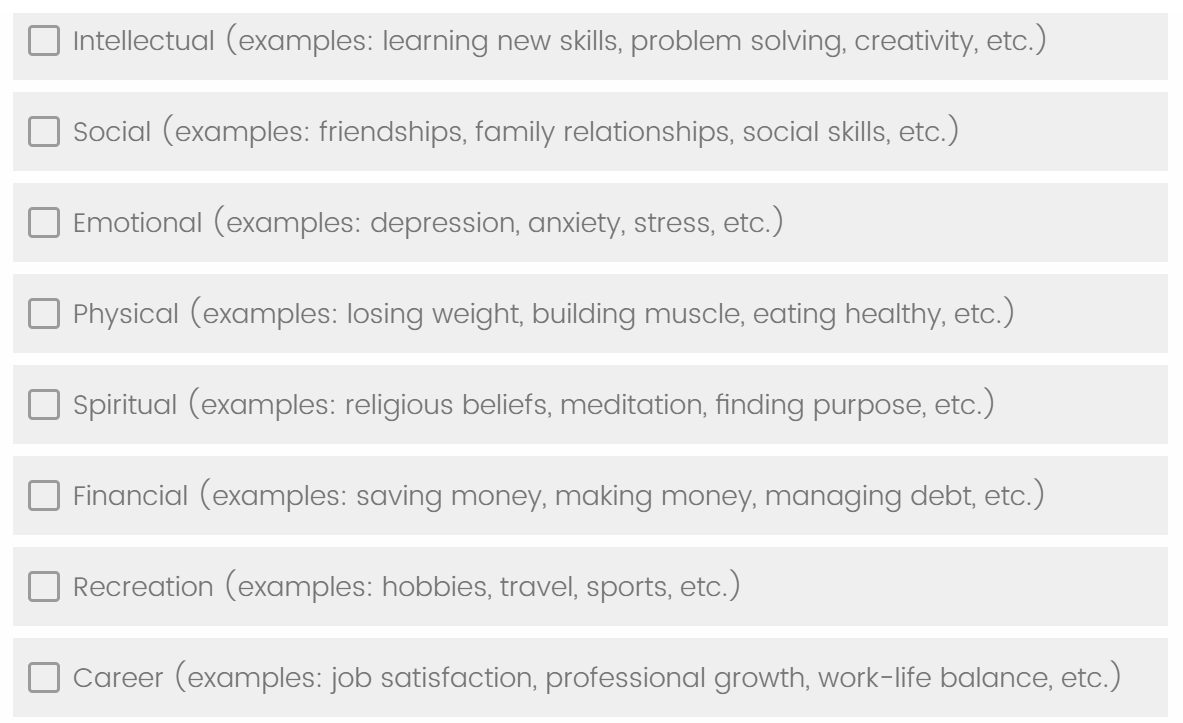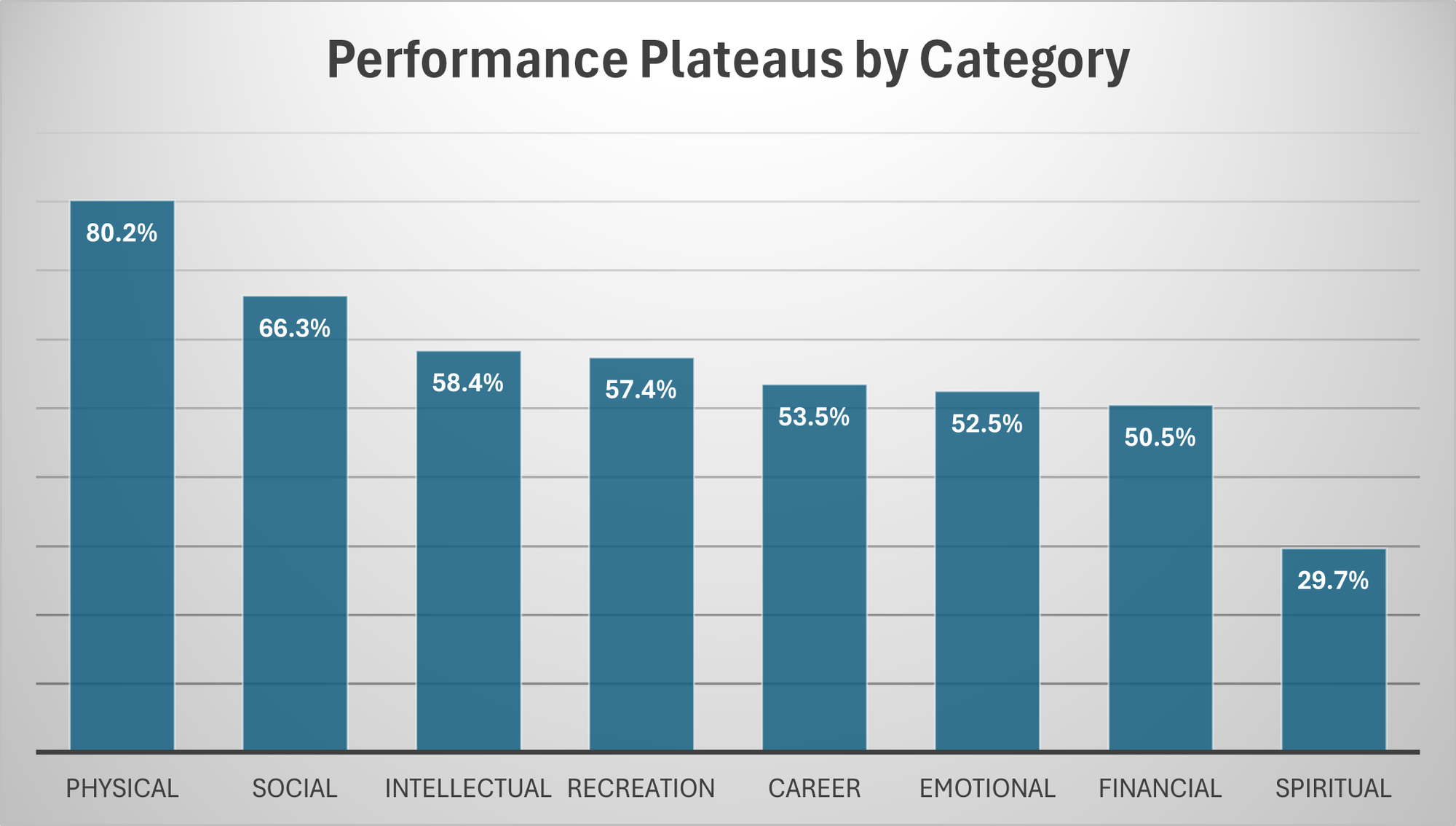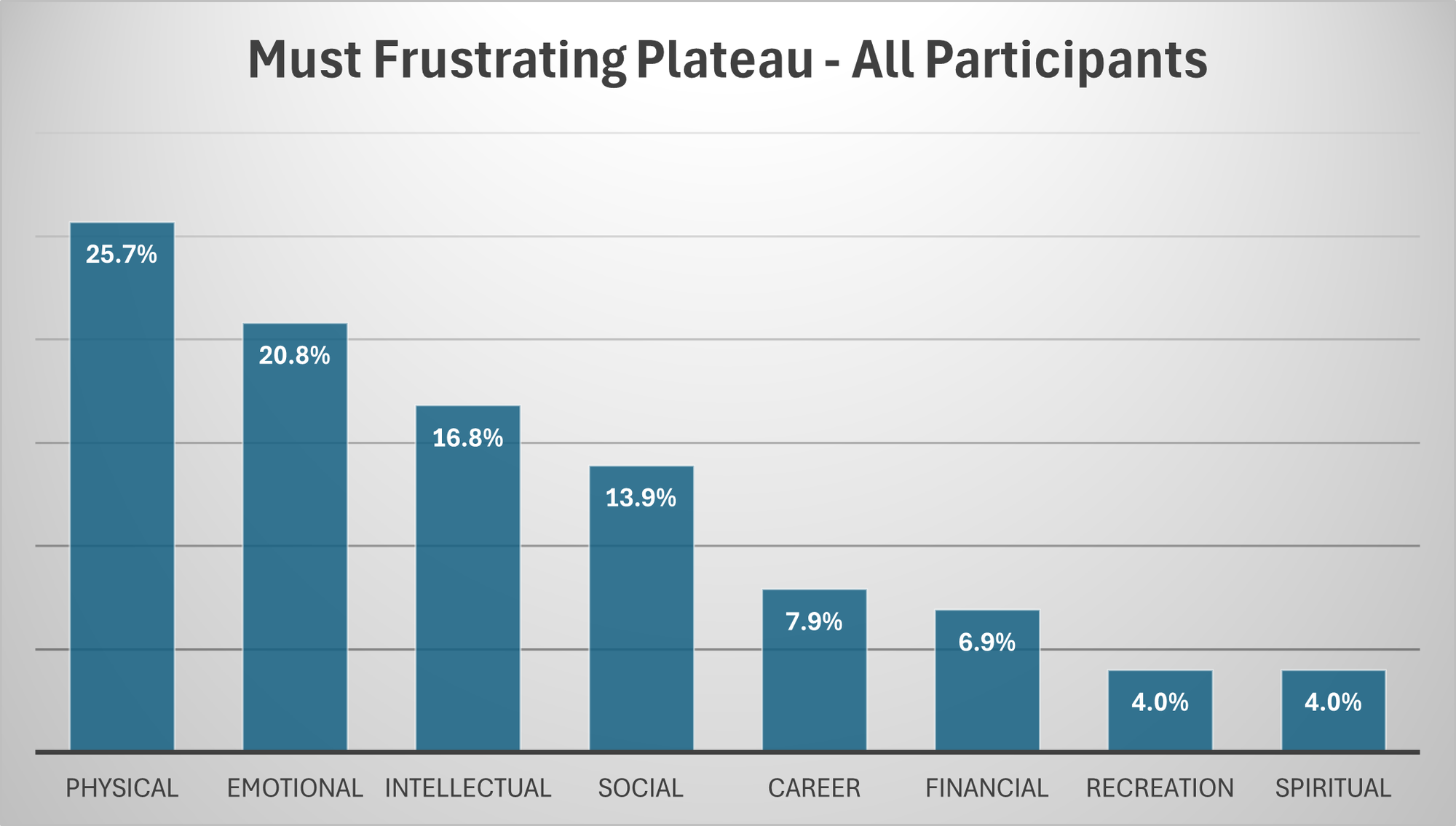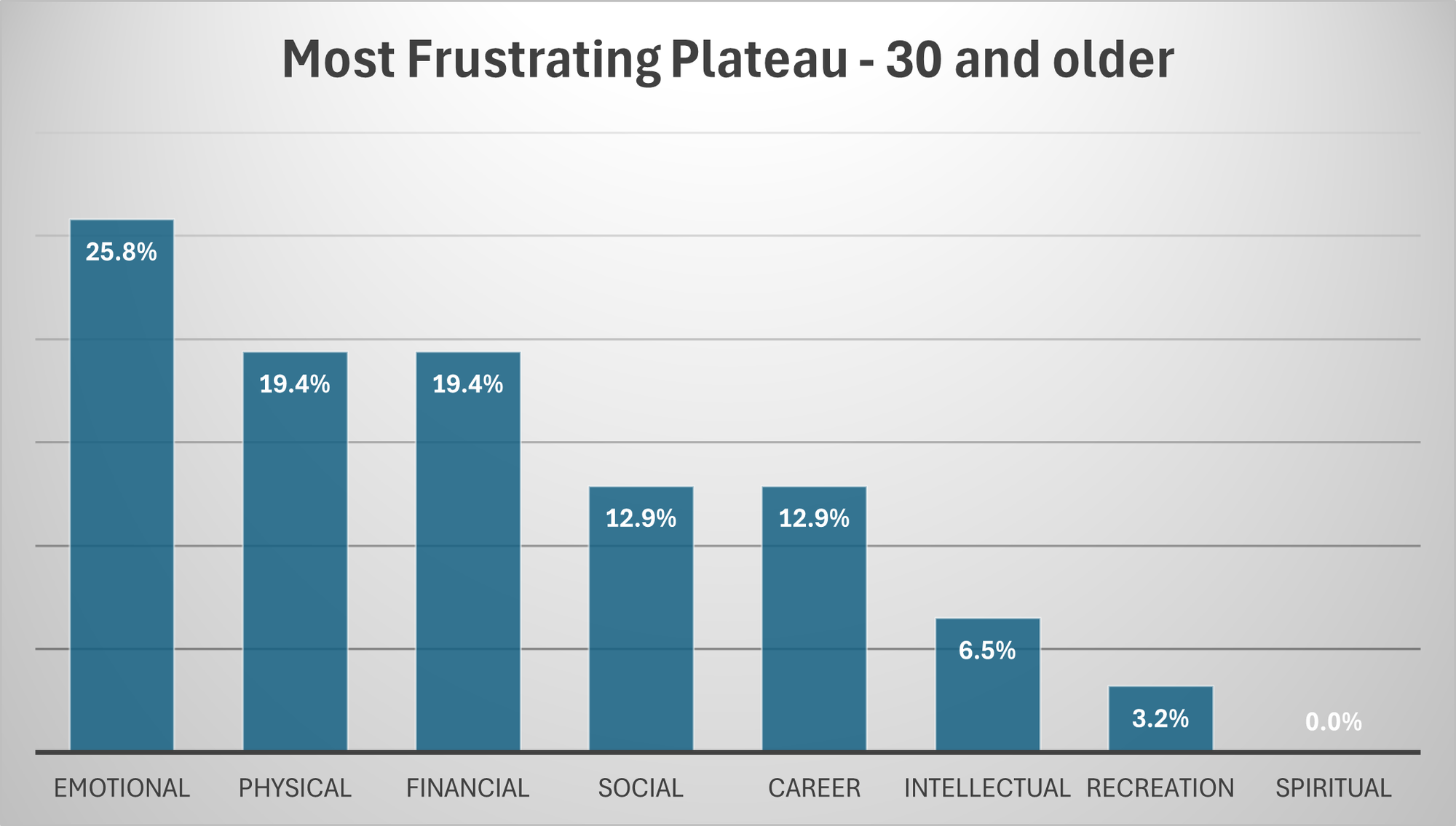Survey Results

Hitting a plateau—when progress stalls despite your best efforts—is one of the most frustrating challenges in any pursuit. I set out to learn how common performance plateaus are, which types occur most frequently, and the best ways to overcome them. I surveyed 101 individuals about their experiences with plateaus. Here’s what I learned—and how it can help you push past your own plateaus.
What Percentage of People Experience Performance Plateaus?
First, I defined a performance plateau for the participants: “At first, you see yourself getting better and better, but then, even though you keep trying just as hard, it feels like you’re not improving anymore.”
Then I asked them three related questions to determine if they had experienced a plateau at some point in their life. I asked them three different ways because sometimes people can misinterpret the question.
Question 1: 97 percent of people indicated they had experienced a plateau.
Question 2: 92 percent of people indicated they had experienced a plateau.
Question 3: 89 percent of people indicated they had experienced a plateau.
What Types of Performance Plateaus are Most Common?
I gave participants eight plateau options: Physical, Social, Financial, Emotional, Spiritual, Intellectual, Career, and Recreation.

To avoid bias, I randomly mixed up the category order for each participant. Here are the results.

Physical performance plateaus were the most common at just over 80 percent.
It's no wonder there are thousands of different diets and exercise plans. Further, this data helps us understand why people are willing to try both legal and illegal supplements. The health and wellness industry is now a trillion dollar industry according to McKinsey and Company. People feel stuck! They are putting forth effort, but seem to be plateauing.
Surprisingly, social performance plateaus were the next most common. 66.3 percent of participants reported that they had experienced a social plateau at some point in their life.
Spiritual plateaus were the least frequent type of plateau mentioned.
What Type of Performance Plateau is the Most Frustrating?
I gave participants the same eight categories and accompanying examples and asked them, "Which type of plateau bothers you the most? (select one)."

Physical performance plateaus were the most frustrating according to 25.7 percent of my participants. Although emotional plateaus were only the sixth most likely to occur, they ranked towards the top in terms of how discouraging they are.
Age likely matters. Living longer gives us more opportunities to experience plateaus. Thus, I hypothesized that age might shake up these results a bit. Specifically, I expect career and financial plateaus probably feel more frustrating as we get older, since younger people haven’t had as much time to hit those walls. Below, I re-run the analysis with participants who are 30 years old or older.

As expected, financial and career performance plateaus become much more frustrating. Interestingly, emotional plateaus become the most frustrating plateau amongst this group.
How does Experiencing a Performance Plateau Make You Feel?
I asked participants to think about a plateau they had experienced. Then I asked them to look at an emotion wheel and use up to five words to explain how the plateau made them feel. Below I provide the top 15 emotion words used along with their count.
| Emotion Word | Count |
| frustrated | 46 |
| discouraged | 37 |
| critical | 19 |
| irritated | 18 |
| inadequate | 18 |
| overwhelmed | 16 |
| anxious | 14 |
| inferior | 12 |
| confused | 12 |
| isolated | 11 |
| ashamed | 11 |
| sad | 10 |
| tired | 10 |
| insecure | 10 |
The data suggests that we feel frustrated, discouraged, critical, irritated, and inadequate when we hit a performance plateau.
Have You Ever Overcome a Plateau?
I asked participants if they had ever overcome a plateau before. A total of 92.1 percent of participants said yes. This is hopeful and a good reminder that most plateaus are not terminal, meaning there is still room for growth ahead.
What advice would you give to help overcome a plateau?
I took all the advice given and separated it into eight broad categories.
- Persistence - Advice focused on persistence, resilience, and not giving up, even when progress feels slow or nonexistent.
- Patience - Guidance focused on accepting delays, enduring challenges calmly, and trusting that the progress unfolds over time. Instead of days and weeks, think months and years.
- Mental Health - Guidance aimed at supporting emotional resilience, stress management, and a positive mindset when facing difficult plateaus.
- New Methods - This advice encourages trying new strategies, adjusting your goals, or changing your methods drastically.
- Evaluate and Adjust - Similar to New Methods, but less drastic and more incremental. This theme includes advice like analyzing what’s working, reflecting on progress, and making small course corrections.
- Take a Break - Advice in this category recommends resting, stepping away, or not forcing progress.
- Micro-Goals - Advice centered around taking small, achievable steps that contribute to a larger, long-term goal. These small steps provide momentum.
- Mentorship - This category includes suggestions to learn from others who are experts in the area in which you are plateauing.
Below is the number of times a category of advice was mentioned.
| Category | Count |
| Persistence | 61 |
| Mental Health | 27 |
| Patience | 25 |
| New Methods | 19 |
| Evaluate and Adjust | 15 |
| Take a Break | 9 |
| Micro-Goals | 8 |
| Mentorship | 6 |
Not surprisingly, the most common advice given was to be persistent and not give up. Surprisingly, relatively few individuals suggested getting a mentor.
Performance plateaus are nearly universal, but they’re not permanent. The data shows that while plateaus can leave us feeling frustrated and discouraged, many people find a way through. Whether it’s staying patient, focusing on mental health, or trying a new approach, there’s no one-size-fits-all solution. The data suggests that most people think persistence is key, but an overlooked approach might be to find a mentor who knows how to get you out of the plateau.